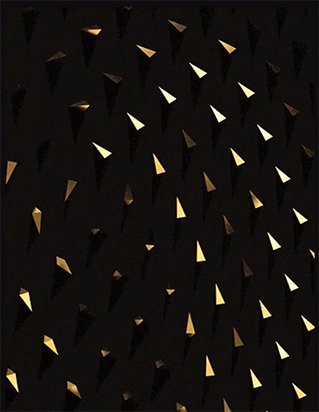117
Little jewel. COLLIN THOMAS
(self-release 2012)
Retour sur un lieu funeste, en 1959 Perry Smith rencontre Richard Hickock au café Little Jewel quelques heures avant de massacrer la famille Clutter, dans le Kansas. D’un article de journal lu par Truman Capote est né le roman “De sang-froid” (In Cold Blood).
Mais là où Truman Capote a éprouvé de la fascination pour les tueurs, et en particulier pour Perry Smith, Collin Thomas ne nous dit pas ce qu’il en est de son point de vue, est-ce fascination, catharsis, l’important n’est peut-être pas là, il nous reste son enregistrement réalisé cinquante-deux ans après sur la parcelle du Little Jewel.
‘Little Jewel’ ou ce qu’il en reste, l’enregistrement démarre par un drone, quelques minutes préparatoires à la découverte de l’espace, comme un seuil à franchir, un moment d’attente, de temps suspendu. Puis vient la prise, statique, extérieure, à tel point qu’on en vient à se demander si le bâtiment existe encore, tout ici n’est que souffle et esprit, pur Pneuma où se retrouvent parfois quelques interactions, une présence subtile de l’artiste à peine perceptible.
C’est comme si toute présence humaine cherchait à éviter le lieu, la circulation automobile est ténue, un avion se dévoile au loin, seules les arbres font corps avec le vent, perdent des feuilles qui viennent passer à proximité des microphones, quelques oiseaux sont là, choeur simple et naturel ignorant superbement la folie des hommes.
Des drones subtils viennent chercher l’harmonie, une enseigne semble grincer, une porte ou une fenêtre, et dans cet isolement on se surprend à guetter l’écho d’un passé révolu, deux hommes meurtriers en forment l’épicentre. Puis passé les secousses un premier retour cinquante ans auparavant, Truman Capote avec quoi, un crayon, des carnets, des heures passées à écrire, immobile au même lieu, on se dit alors que cet enregistrement s’écoute comme on lit un livre, indifférent au temps qui passe, jusqu’à ce que le vent s’apaise, que les drones viennent conclure cette pièce sonore qui aura su nous tenir en haleine, jusqu’à la dernière page.
-Flavien Gillié
(Translation to English)
Back to a deadly place, in 1959 when Perry Smith met Richard Hickock at Little Jewel’s coffee shop in Kansas a few hours before killing the Clutter family. From a newspaper article read by Truman Capote the novel “In Cold Blood” was born.
But where Truman Capote was fascinated with the killers, in particular Perry Smith, Collin Thomas doesn’t open himself up to what he has on his mind. Is this fascination? Catharsis? The important part is elsewhere: perhaps in this recording made fifty-two years after the plot of Little Jewel.
‘Little Jewel’, or what remains of it. The recording starts with a drone, a few minutes leading to the discovery of the location, of its space. As a threshold to cross, or a moment on hold, suspended in time. Then comes a field recording, static, outdoor. So much so that one comes to wonder if the building still exists, everything here is just breath and spirit, pure Pneuma. A few interactions are sometimes found, with the subtle, barely perceptible presence of the artist.
It is as if any human existence was trying to avoid the place, the street traffic is thin, a plane reveals itself in the distance, the trees integrate themselves in the wind, the falling leaves passing by the microphones, some birds are there as well, adding a beautifully simple and natural choir, ignoring human folly.
Subtle drones come to seek harmony, a store sign appears to grind, a door or a window. And in this isolation, we find ourselves lurking in the echo of a past long gone, with two murderers at the epicenter. Then, after the first jolts, we go back to fifty years ago, with Truman Capote, a pencil, a notebook, hours spent writing, motionless. And we tell ourselves that one can listen to this recording as one would read a book, indifferent to the passage of time. Until the winds die away, until the drones come to conclude this piece that will have kept us on our toes until the last page.
-Flavien Gillié, translation by Rodolphe Gonzalès.







Leave a Reply